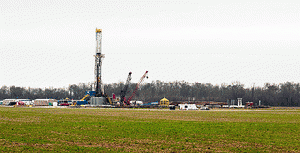by danielfoster437
What would you like to know about fracking? An upcoming lecture series at the University
of Colorado aims to find out "what we know, what we don't know, and what we
hope to learn about natural-gas development".
It's hosted by the Center for the American West, CU Continuing Education,
Boulder County, and an entity calling itself the AirWaterGas Research Network. CU Boulder is the lead institution of a
Sustainability Research Network (SRN) funded by the National Science
Foundation. The Network plans to engage
27 researchers at nine institutions including of course CU. The mission of the SRN, according to the
website AirWaterGas.org, is to provide a science-based framework for evaluating
the effects--environmental, economic, and social--of natural-gas development and to
evaluate what this development means for quality of air and water. And the SRN is expected to remain
neutral.
Most Tuesdays from late
February through May, a speaker with expertise on specifics of natural-gas
development will provide a 'measured, honest exploration' of some aspect of
this topic. Presenters are charged to be
honest about admitting unknowns and to admit necessary questions. The speakers are named but not bio'd in the
brochure that accompanies the series.
Here's a sampling of topics on the menu: "Water for Energy: How much does it take?"--a topic crucial in
the arid West; "What Do We Know and Not Know About the Risk of Oil and Gas
Development to Our Water Supplies"--another critical issue; "Atmospheric
Perspectives on Oil and Gas Operations"; and "Does Living Near Hydrofracturing
Activity Put Our Health At Risk?". Other
topics cover politics and economic issues, as well as an environmental
perspective.
The series will be ably moderated by Patty Nelson Limerick,
a professor of history and Faculty Director and Chair of the Board of the
Center of the American West at CU. One
of her stated aims in her work is to bridge the gap between academics and the
public--and, in this case maybe, between industry and the populace affected. Although I haven't read them she seems to
have solid credentials in a substance integral to fracking--water; her books
include "Desert Passages" and "A Ditch in Time:
The City, the West, and Water". She
finds solace in applying historical perspective to today's conflicts--she is,
after all, an historian.
Last Tuesday, February 26, Limerick launched the series. There was no other speaker that night but
there were plenty of observers as she set the tone. She reminded us how science is intertwined in
the history of the American West; both Lewis and Clark and John Wesley Powell explored
at the behest of the federal government.
Recognizing the potential for strong opinions among the listeners, she
cautioned us to beware of what Cass Sunstein, a legal scholar in the Obama
administration who co-wrote a paper on possible government responses to 'false'
conspiracy theories, called informational
social cascading--an individual's unconscious decision, in the midst of emotional
mass decision-making, to blend in rather than resist. Conformity thickens the social fabric; in
addition, being firmly woven into the blend insures not being aborted as an
errant thread. On the other hand, she
allowed, secrecy and concealment on the part of the energy industry--ingredients
of fracking fluid are mysteries meticulously guarded--augment suspicion in
anyone outside the industry (excepting politicians, perhaps).
Speakers may address questions such as these:
What is the relationship among singular aquifers,
and to what extent do plumes connect them?
How do the equipment and engines of mining affect air and
water quality, and how secure are underground casings?
Might the changes inherent in mining operations contribute
to feelings of stress and helplessness in those living nearby?
Ecosystems contain a certain amount of resilience that
protects against harmful factors; how do we know when we are approaching the
point of affecting resilience?
I myself question the long-term effects of injection
wells.
Dr. Limerick feels that industry has become more respectful
since the early 1900s and that regulation and restoration will ensure that the
era of unbridled exploitation is steadfastly behind us. Unfortunately I don't share her optimism, although
I intend to hold my mind open with well casing if necessary until I've heard
the evidence in this series.
Even so, I can't help wondering if neutrality must be
maintained at the expense of a larger truth.






